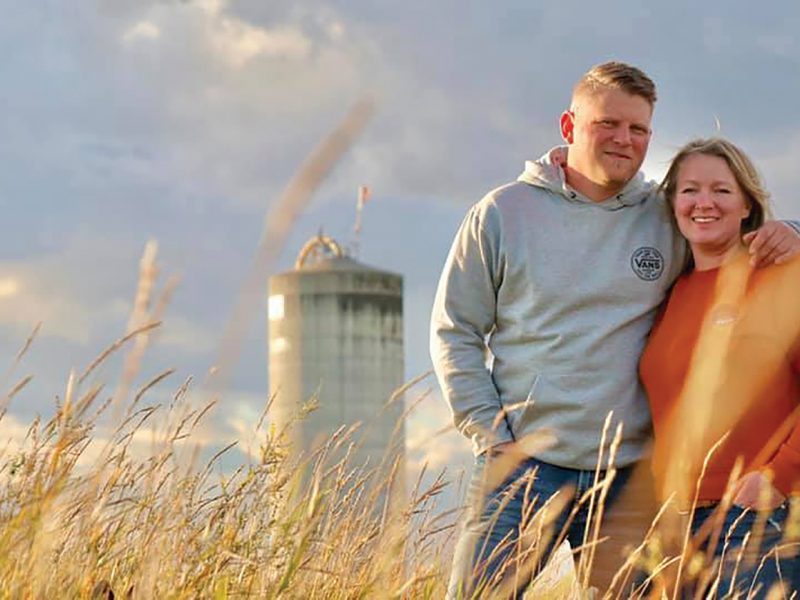FORT ST. JOHN – Dozens of new producers granted
on-farm meat processing licences since the province overhauled its meat inspection regime in fall 2021 now face hurdles securing insurance coverage.
“When we looked into getting coverage for a Farmgate Plus licence for poultry, I was given a hard ‘no,’” says Pam Tjepkema of Peace Vale Farm and Meat Shop in Fort St. John.
Peace Vale is a licensed butcher that provides cut-and-wrap for the Tjepkema’s own farm-raised beef as well as that of neighbouring producers.
“We have an abattoir in our area and we are happy continuing to use it for our beef, but we were considering raising chickens and would want to process them ourselves,” she says.
Tjepkema spoke to a number of insurers before securing what she considered the best possible coverage from Crystal Piggott, an account executive with BFL Canada in Salmon Arm.
“She was able to give us coverage for our butcher shop and all of the farm together, but not for a farmgate licence,” Tjepkema says.
Country Life in BC spoke to a number of farmgate licence holders across the province who have been unable to obtain coverage.
“I’m not sure that any of the farmgate businesses really have insurance,” says Julia Smith, executive director of the Small-Scale Meat Producers Association. “They may think that they have coverage, but when they really study their policy, I am worried that they do not have the coverage they think.”
It’s not for lack of trying.
“We’ve been ghosted,” is how one long-time South Coast licensee described the frustration of dealing with insurance companies (the producer asked for anonymity as the operation’s lease could be jeopardized by a lack of insurance). “We would initiate a conversation and they just wouldn’t get back to us, which is odd, because an insurance company is usually all over you to get your business.”
The government has moved to bring more regulation to the industry and open up more opportunities for processing, but a lack of insurance is creating issues for producers.
“This is critical and can’t be ignored. We need some support,” the South Coast licensee says. “The government has taken steps to make us more legal. We should be insurable. Bungee-jumping and zip-line companies are, but we have been unable to obtain even partial coverage for either our house, our buildings or for the inventory of meat that we keep on site when we explain that we have a Farmgate licence for on-farm processing.”
Insurance hasn’t been a problem for one government-inspected facility.
“We were able to get coverage when we opened our slaughter plant to go with our cut-and-wrap this fall,” says Dean Maynard, co-owner of Farmhouse Butchery in Westbridge. “The fact that you have a government inspector on site at all times really makes a difference.”
Piggott says government inspection is key.
“If a producer gets the slaughter done at a provincially inspected facility, we are able to put together coverage for the farm and an on-site butcher shop,” she says. “But we have a concern with on-farm slaughter, whether they may be taking in other animals besides their own, and also the disposal of the processing waste.”
But insurers may not fully understand the new licensing system, and producers say it’s government’s job to explain it.
“We didn’t put together a full package to support our request for poultry farmgate coverage as we are pretty busy,” says Tjepkema. “There is an opportunity for the government to explain to the insurance industry what the farmgate licence requires, including the SlaughterSafe course, the development of a food safety plan, standard operating procedures, and a minimum of a yearly inspection.”
SSMPA is working to fill the gap, Smith says.
“We are working with different insurance companies to explain the system to them and try to see if we can build a group plan for our members,” she explains. “But we also hope that the government will move towards more virtual inspection services. They’ve talked about it, our members are in favour of it, and it could help with insurance coverage.”


 TJ Schur to lead IAF
TJ Schur to lead IAF